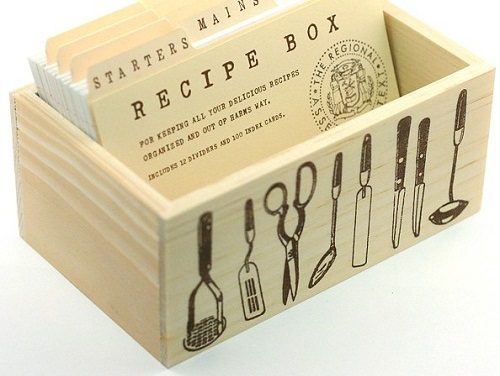The copyright conundrum
June 23, 2024 by DarcieShould chefs be able to copyright recipes? It’s a perennial question in the industry and the debate has raged on for decades. There are problems with other chefs making bank using a recipe developed by a colleague or mentor, but it is diabolically difficult to parse what would qualify as a dish unique enough to be afforded a copyright protection. This age-old debate has taken new life in recent years, and Josh Sims of Insidehook dives into the latest arguments.

In an era where diners often document their visits to top-end restaurants by taking photographs of the dishes, some chefs have instituted no-camera rules in their restaurants. The rationale is that it makes it too easy for someone else to copy not only the combination of ingredients, but also the artistic plating of a dish. Gilles Goujon, chef at a Michelin-starred restaurant, says that photos “take away the surprise” of some of his dishes and “take a bit of my intellectual property.”
Since the US Copyright Office has decreed that a list of ingredients is not enough to qualify for copyright protection, chefs in the US face a large obstacle in their quest to protect their intellectual property. Writing a cookbook offers copyright protection, but only for the specific wording or stories in the book. Someone else could take the same ingredients, rewrite the instructions, and maybe even give it a slight twist, and there is little the original recipe developer can do about it. You can make a recipe a trade secret, and that is something that large corporations do – KFC chicken’s secret blend of “11 herbs and spices” is one example. However, even if a chef were to make a recipe a trade secret, he or she would have to spend a lot of time policing it, making it an onerous task that most people don’t have the time or inclination to manage.
Some chefs feel flattered when someone else copies their recipe; seeing it as imitation being the finest form of flattery. But most would like to at least be credited for the work they did in creating the dish in the first place. Other chefs are puzzled by the call for copyright protections, noting that historically chefs have built on the successes of their colleagues and it can be nearly impossible to list all of the sources of inspiration. Ben Wilkinson, head chef at the Michelin-starred The Pass at South Lodge in the UK, says that “As a chef, you’re constantly taking inspiration from so many different sources. Sometimes you have an idea, and you’re not sure if it’s yours or you’ve just seen it somewhere else.”
Categories
- All Posts (6940)
- Antipasto (2135)
- Author Articles (247)
- Book News (935)
- Cookbook Giveaways (983)
- Cookbook Lovers (257)
- Cooking Tips (109)
- Culinary News (299)
- Food Biz People (552)
- Food Online (791)
- Holidays & Celebrations (272)
- New Cookbooks (149)
- Recipes (1500)
- Shelf Life With Susie (231)
- What's New on EYB (133)
Archives
Latest Comments
- kmwyman on Rooza by Nadiya Hussain – Cookbook Review and Giveaway
- Maryd8822 on The Golden Wok – Cookbook Giveaway
- Dendav on Danube Cookbook Review and Giveaway
- sanfrannative on Rooza by Nadiya Hussain – Cookbook Review and Giveaway
- darty on Danube Cookbook Review and Giveaway
- Atroyer7 on Danube Cookbook Review and Giveaway
- demomcook on What foods do you look forward to the most for each season?
- demomcook on Danube Cookbook Review and Giveaway
- Darcie on How cookbooks can help build resilience
- mholson3 on Danube Cookbook Review and Giveaway